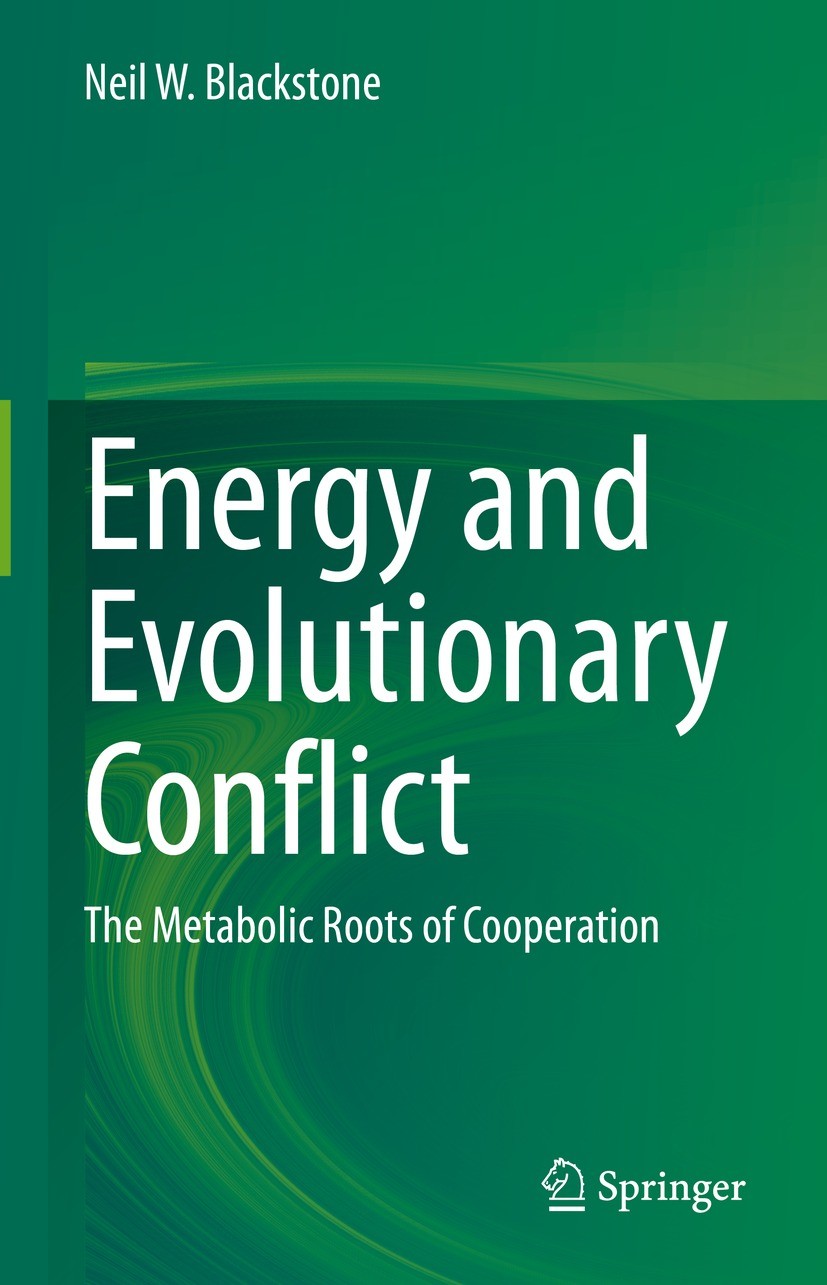| 书目名称 | Energy and Evolutionary Conflict | | 副标题 | The Metabolic Roots | | 编辑 | Neil W. Blackstone | | 视频video | http://file.papertrans.cn/311/310500/310500.mp4 | | 概述 | This work connects two distinct scientific disciplines of energy conversion and evolution of cooperation.Presents energy conversion as a central mechanism that links evolution of cooperation and histo | | 图书封面 |  | | 描述 | In the mid- to late-twentieth century, large scientific conflicts flared in two seemingly distinct fields of scientific inquiry. In bioenergetics, which examines how organisms obtain and utilize energy, the chemiosmotic hypothesis of Mitchell suggested a novel mechanism for energy conversion. In evolutionary biology, meanwhile, Wynne Edwards strongly articulated the view that organisms may act for the “good of the group.” This work crystalized a long history of imprecise thinking about the evolution of cooperation. While both controversies have received ample attention, no one has ever suggested that one might inform the other, i.e., that energy metabolism in general and chemiosmosis in particular might be relevant to the evolution of cooperation. The central idea is nevertheless remarkably simple. Chemiosmosis rapidly converts energy, and once storage capacity is exceeded, an overabundance of product has various negative consequences. While to some extent chemiosmotic processes can be modulated, under certain circumstances it is also possible to simply disperse the products into the environment..This book argues that these two heretofore distinct scientific disciplines are conn | | 出版日期 | Book 2022 | | 关键词 | chemiosmosis; history of life; evolution; group selection; kin selection; reciprocity | | 版次 | 1 | | doi | https://doi.org/10.1007/978-3-031-06059-5 | | isbn_softcover | 978-3-031-06061-8 | | isbn_ebook | 978-3-031-06059-5 | | copyright | The Editor(s) (if applicable) and The Author(s), under exclusive license to Springer Nature Switzerl |
The information of publication is updating

|
|
 |Archiver|手机版|小黑屋|
派博传思国际
( 京公网安备110108008328)
GMT+8, 2025-12-26 20:40
|Archiver|手机版|小黑屋|
派博传思国际
( 京公网安备110108008328)
GMT+8, 2025-12-26 20:40


